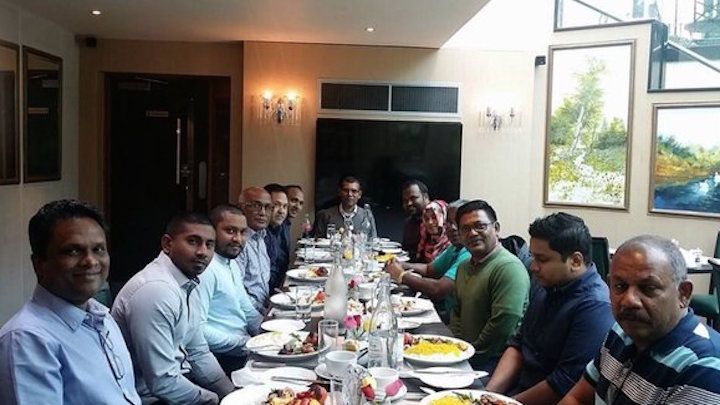A democracy do-over in the Maldives
Abdul Ghafoor Mohamed, former Maldives ambassador to the US, examines the reasons for the anger, despair, disillusionment and hope surrounding the newly launched United Maldives Opposition.

04 Jun 2016, 9:00 AM
Emotions are running high among the political chattering classes in the Maldives as the newly formed United Maldives Opposition (UMO) came into being. There is hope and even some excitement as past rivals came together, shedding their differences, in search of the ‘greater good’. There is anger and despair, even disillusionment and cynicism with the new leadership. There are the idealists, who never fail to see the rainbow. There are the realists who know the rainbow is not real. And then, of course, there are the rationalists, who are always willing to give every effort a chance.
As may be expected, the debate is most intense among the die-hard supporters of the Maldivian Democratic Party who have borne the brunt of the highs and lows of the democratic transition experience in the Maldives. Some argue UMO to be an inspired political move that would galvanize hitherto political rivals into a one united group, posing a clear and credible threat to the dictatorial ambitions of President Abdulla Yameen. Others see the move as yet another cynical and a fatally doomed political exercise, deserving of only contempt, destined to bring even more disenchantment to the long suffering people of the Maldives, whose dreams of democracy keep on getting stolen.
In the serendipitous exile of so many prominent yet disillusioned Maldives politicians in one place, safely out of reach of President Yameen’s regime, it is only natural that they would be drawn together like moths to a flame. Although UMO is said to be led by former Vice President Mohamed Jameel Ahmed, there is no doubt amongst any that the inspiration and force behind the group is former President Mohamed Nasheed, who seems to have opted for a more behind the scenes role for the time being. But it is difficult to conclude that President Nasheed would ever position himself to play second fiddle to VP Jameel or any other Maldivian politician for that matter. While President Nasheed may appear to have won over most of the party ‘establishment’, to support the new initiative, his success in convincing a large portion of the MDP grassroots supporters about the ‘big picture’ of UMO remains an uphill task, a work still in progress.
Leadership Angst
Become a member
Get full access to our archive and personalise your experience.
Already a member?
Discussion
No comments yet. Be the first to share your thoughts!
No comments yet. Be the first to join the conversation!
Join the Conversation
Sign in to share your thoughts under an alias and take part in the discussion. Independent journalism thrives on open, respectful debate — your voice matters.




